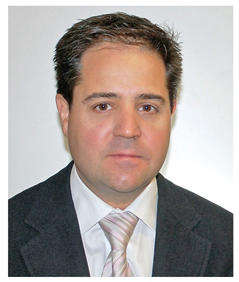 When talking with my colleagues it is astonishing how often the topic of how to deal with difficult parents in the office comes up. It appears that dentists who treat the pediatric population are having more and more challenges dealing with the expectations of the parents than treating the child themselves. Why is that? Although it is not entirely clear, there are a couple of reasons that I feel may be contributing to this new phenomenon.
When talking with my colleagues it is astonishing how often the topic of how to deal with difficult parents in the office comes up. It appears that dentists who treat the pediatric population are having more and more challenges dealing with the expectations of the parents than treating the child themselves. Why is that? Although it is not entirely clear, there are a couple of reasons that I feel may be contributing to this new phenomenon.
Firstly, many parents are coming to the dental office preloaded with information much of which may be false or not entirely correct. It is not uncommon to have parents seek the assistance of “Dr. Google” prior to their dental visit.
The Internet provides quick and free of charge information for curious and concerned parents. The information provided by “Dr. Google” can however be misleading and/or elicit confusion. Although some of the information provided by “Dr. Google” is correct, if a parent does not have a dental education behind them, it may be difficult for the parent to digest or thoroughly understand the information they have acquired from the Internet. Armed with “Dr. Google” and information from other non-dental sources, the parent arrives in the dental office muddled, resulting in a challenging environment for the dentist when it comes to providing properly informed dental care.
Secondly, parenting styles in general have changed dramatically over the last few decades. Some have referred to it as “Smothering not Mothering”. Current parenting is either not the same as when we went to dental school or the dental schools are teaching management techniques based on dated parenting styles. Either way, the dentist can find himself or herself unprepared to treat the children of these parents. For example, many parents have the expectation that during dental treatment their child will not experience any discomfort, not even during the administration of the local anaesthetic. If this particular child reacts while being administered the local anaesthetic, I can guarantee that the parent is going to respond in a similar manner. Traditionally many dentists did not have this issue, as having a parent in the room was an anomaly. I would argue that not having a parent in the room does not necessarily cure the problem because that same parent with the unrealistic expectations will react when the child comes out of the operatory crying.
How is a dentist treating children able to manage this? It is paramount that the dentist understands the expectations of the parents and the child you are treating. That old adage “know your patient” or “never treat a stranger” really holds true. During the consultation visit it is important to explain not only the procedures you will be providing for the child but what the child and the parent can expect. Simply put, if you explain what to expect properly before, the parents and the child are prepared and the dentist is more likely to be successful, not only with the dental work but also in making a family happy. If you explain it to them afterwards, it will more likely come across as an excuse. It is also important to answer all of the questions that the parents may have during the consultation visit. This is a great opportunity to weed out the misinformation that the parents may have gotten from “Dr. Google”.
Informed consent is a continual act from the beginning of treatment to the end. For this reason, it is important for the parents to always be invited into the dental operatory during the treatment. Parents have the right to take away consent at anytime. I know that many of the dentists reading this, who choose to not have the parents in the room, are shaking their heads but it is a reality that parents must stay informed. If however the parent is going to be present during treatment, the parent must understand their role in the operatory. They are there to support their child through a procedure. It is important to present the parent with their task of a patient-centered philosophy whereby they understand what they need to do in order to properly and successfully treat their child. I always tell the parents to praise and encourage their child through the treatment. Often, due to their own personal anxiety, parents have to put on their best “Oscar winning performance” in order for their role to be credible and successful. An anxious child often comes with an anxious parent. Treating children is not effortless or without challenge but if you recognize the fact that there are varying parenting styles, and if you involve the parents in the treatment of their children, you will find success.
Patient care in pediatrics starts with the parents!OH
David Farkouh is a paediatric dentist working in a private practice in Toronto, ON, and is a staff paediatric dentist in the Department of Dentistry at The Hosptial for Sick Children, Toronto.
Dr. Farkouh is the paediatric dentistry editor for Oral Health.












